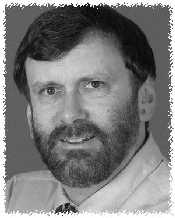When is it appropriate to use the words “fundamentalist” and “cult?” What are other terms with which I must be careful?

By Don Lattin
The San Francisco Chronicle*
CULT is a word that should be used with care. Some of its dictionary definitions are value neutral, with such meanings as “formal religious veneration,” such as the cult of Mary in the Roman Catholic Church, a cult of which Pope John Paul II is a proud member.
Another of its meanings is “a religion that is regarded as unorthodox or spurious.” Some religions that are now considered mainstream, such as the Church of Jesus Christ of Latter-day Saints, began as persecuted “cults.” Other groups that became synonymous with “cult,” such as the People’s Temple of the Rev. Jim Jones, began as a respected progressive Christian congregation headed by an ordained minister with the Disciples of Christ, a mainline Protestant denomination.
Many in academia now use the phrase “new religious movement” instead of cult, although there are also values and specific meanings packed in that phrase.
Some journalists and headline writers use “sect” rather than “cult,” but a “sect” is technically a group that split off from another movement, such as the Branch Davidian sect of the Rev. David Koresh, which traces back to the Seventh Day Adventist church. Some writers never use the word “cult” unless it is attributed to another person, arguing a cult is just “someone else’s religion.” Indeed, it can be argued that all religions began as either “cults” or “sects.”
On the other hand, cases where the word “cult” would appear to be clearly warranted include references to Heaven’s Gate, the Southern California “UFO cult” whose members died in a mass suicide ritual. Often, the use of the word is up to the judgment of the writer. It’s like pornography. It’s hard to define, but you know it when you see it.
FUNDAMENTALIST, with a capital “F,” most specifically refers to a 20th century Christian movement that stressed a literal interpretation of the Bible. That movement espoused five “fundamentals” for Christian faith-the inerrancy of Scripture, the divinity of Jesus, the virgin birth, the doctrine of atonement and Jesus’ bodily resurrection and physical return.
Some Christians now feel the term “fundamentalist” has a derogatory connotation, but that does not mean fundamentalists should not be called “fundamentalists.” Most would prefer the term “conservative evangelical,” which may also be an accurate way of describing this type of Christian. Writers should also think as to whether the term “Pentecostal” or “fundamentalist” best describes the group or person in question.
Pentecostals may be defined as Christians and Christian congregations seeking to be filled with the Holy Spirit-the third person of the Trinity in traditional Christian theology-in order to replicate the spiritual gifts-such as speaking in tongues-experienced by Christ’s apostles at Pentecost in the Christian New Testament.
Care should also be used when describing the followers of other faiths as “fundamentalists.”
Religious fundamentalism also describes groups that are more generally struggling against modernism, and espouse the return to stricter models of truth and value, such as those forces that won victory in the Islamic revolution in Iran in 1979. These groups are often authoritarian in nature.
If you refer to groups that espouse violence in the name of Islam, the term “militant Muslims” or “militant Islamic movement” may be more appropriate.
Another word that can sometimes be used to avoid “fundamentalist” is “extremist.” That usage implies that the believer is taking certain aspects of his or her faith to an extreme, rather than returning to its fundamentals.
*This article was written in 2001, at the time Don Lattin was writing for the San Francisco Chronicle. Lattin is now a freelancer.
